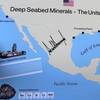WHTI Land and Sea Notice of Proposed Rulemaking Published
The proposed rules require most U.S. citizens entering the United States at sea or land ports of entry to have either a U.S. passport; a U.S. passport card; a trusted traveler card such as NEXUS, FAST, or SENTRI; a valid Merchant Mariner Document (MMD) when traveling in conjunction with official maritime business; or a valid U.S. Military identification card when traveling on official orders*. The NPRM also outlines ongoing efforts to provide other alternative documents. For citizens of Canada, Bermuda and Mexico, the following documents are accepted forms of identification: Canadian citizens: May present a valid passport issued by the Government of Canada, or a valid trusted traveler program card such as NEXUS or FAST Bermudan citizens: May present a passport issued by the Government of Bermuda or the United Kingdom. Mexican citizens: As under current entry requirements, Mexican nationals, regardless of age, must present a passport issued by the Government of Mexico and a visa, or a valid Form DSP-150, B-1/B-2 laser visa (Border Crossing Card)**. The departments have also identified unique circumstances for specific groups of travelers that warrant permitting the use of alternative documents. U.S. citizens on round trip cruise ship voyages that originate and end in the United States may present a government-issued photo ID and birth certificates, Consular Reports of Birth Abroad or Certificates of Naturalization.
U.S. and Canadian citizen children under 16 as well as children ages 18 and under traveling in designated groups may present certified copies of their birth certificates. U.S. children may also present Consular Reports of Birth Abroad or Certificates of Naturalization. Alien Members of the U.S. Armed Forces and Members of NATO-Member Armed Forces may present military identification and official orders. Members of the Kickapoo Band of Texas and Tribe of Oklahoma may present the Form I-872 American Indian Card. The NPRM follows an Advance Notice of Public Rulemaking (ANPRM) for land and sea published in the Federal Register on Sept. 1, 2005, and a final rule for the Air Phase of WHTI that was published in the Federal Register on Nov. 24, 2006. WHTI requirements were implemented for all air travel on Jan. 23, 2007, and have shown compliance rates in excess of 99 percent since implementation. DHS and DOS recently announced that U.S. citizens traveling to Canada, Mexico, the Caribbean, and Bermuda who have applied for but not yet received passports can nevertheless temporarily enter and depart from the United States by air with a government issued photo identification and Department of State official proof of application for a passport through Sept. 30, 2007. The federal government is making this accommodation for air travel due to longer than expected processing times for passport applications in the face of record-breaking demand. WHTI requirements are the result of recommendations made by the 9/11 Commission, which Congress subsequently passed into law in the Intelligence Reform and Terrorism Prevention Act of 2004.
Standardized, secure and reliable documentation will enable the Department of Homeland Security to quickly, reliably and accurately identify travelers at air, land and sea ports-of-entry. Investigators have repeatedly stressed the security risk posed to border security by the approximately 8,000 forms of identification currently in use, and the challenge at the borders in assessing individual travelers based on these many documents without significantly slowing the processing time for admission into the United States. Limiting and standardizing the types of documents presented will result in a more secure and efficient border.










